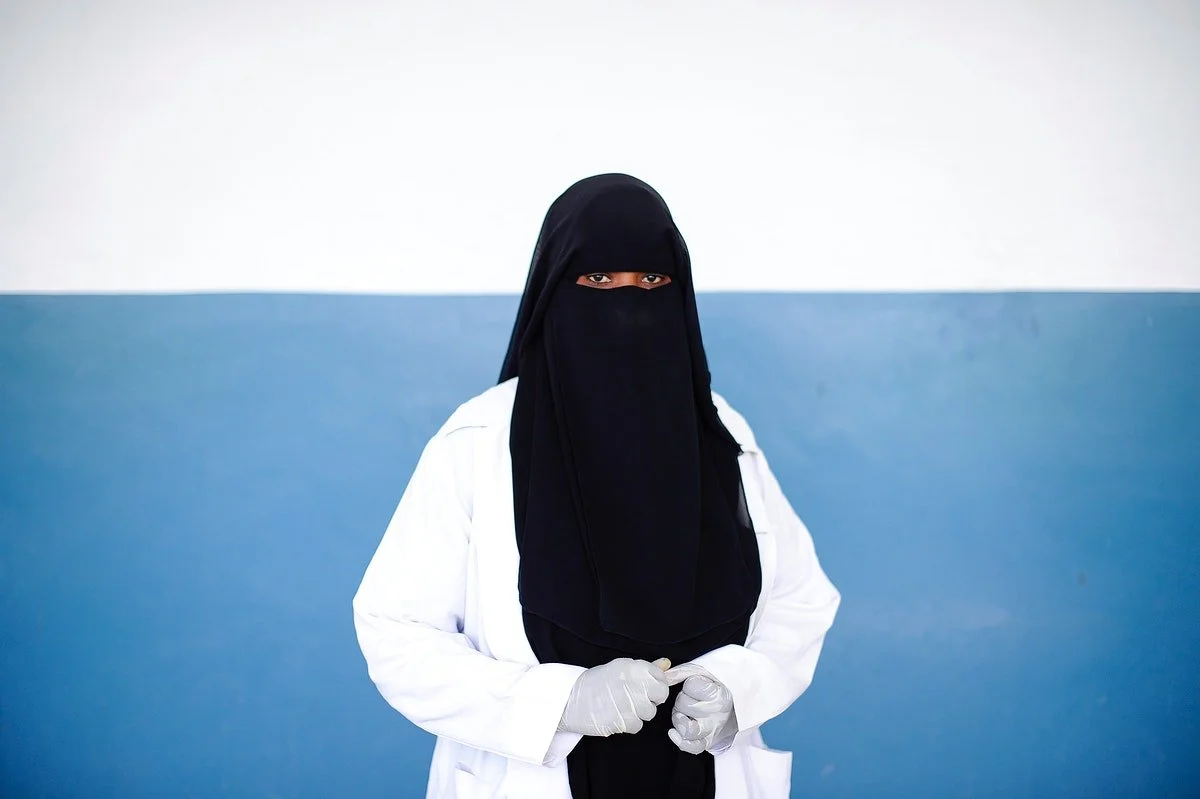Study Finds Muslim Woman In India Face Discrimination When It Comes to Hiring
NEW DELHI — In 2017, when Lubna Aamir first started to look for jobs in the medical field, she struggled to understand the constant rejections. Then she noticed a pattern.
“When I applied for jobs that were advertised on platforms like LinkedIn, as soon as I went for the interview I was told that the position had been filled, but for months I would notice the same job still being advertised,” she said. “I gave endless interviews, but as soon as the recruiters found out that I was wearing the headscarf they turned me down.”
Once in an interview at a private dental clinic, the recuiter asked Aamir if she would be willing to take off her hijab if the need arose.
READ: A Visit To The Latter-Day Saints ‘Wizard Of Oz’ Temple In Washington, DC
“She tried to pacify me by putting the blame on the elite clients for not being comfortable with my hijab,” Aamir said. “That was the day when I started questioning everything.”
Today, she has changed her career path from a dentist to a medical data analyst. A recent study has confirmed her suspicions.
LedBy Foundation and Maulana Azad National Urdu University of India published research recently that found bias against Muslim women in India exists across all industries.
For the study, two similar fake resumes were created, one of a Hindu woman named Priyanka Sharma and the other of a Muslim woman named Habiba Ali. For more than 10 months, these resumes were used to apply to 1,000 real, entry-level jobs. It was found that the net discrimination faced by Ali was about 50%. Of the 1,000 jobs applied to, Sharma received 208 positive responses, while Ali received only 103.
Kahkashan Kaif Al Saleh is a marketing representative at a private hospital in New Delhi. She has also worked as an independent photojournalist in New Delhi for the past decade. She tried working for various media organizations but was turned down because of her hijab, she said.
“Once I was selected to teach photography at a government institution, but during the selection process, a senior teacher objected to my hijab,” al Saleh said. “He wanted me to wear ‘normal’ clothes if I were to be a part of the school. What is not normal about my hijab?
“Later on, the principal called me to ask whether I will be taking the position, but just after a few moments I got a call back that they had already hired someone else.”
Al Saleh said her “Muslimness” was questioned so much that at one point she started designing her own clothes to appear more accommodating.
In India, female workforce participation is among the lowest in the world. For Muslim women who are economically and educationally marginalized, the rates for labor market participation remain the lowest, at about 15%.
“Identifying the problem and having conversations is the first step on the issue of hiring discrimination,” said Ruha Shadab, the founder of LedBy Foundation and a co-author in the report. “In the beginning of the research we had an idea of the discrimination, but we never thought it exists to such an extent.”
Eisha Hussain, a feminist and multimedia journalist at BehanBox, a women-led organization, believes there is an urgent need to train organizations and employers to be aware of bias toward gender and social identities.
“While I believe religion should not be a criteria for shortlisting candidates, the unfortunate reality is that it is being widely practiced in India,” Hussain said.
Representations of Muslim women as oppressed and submissive in popular culture contribute to how Muslim women in India are treated in professional settings. The general population is fed with assumptions that Muslim women wearing headscarves are oppressed and backward. This mentality is reflected when recruiters are hiring for jobs.
“We can’t look at the phenomenon of hiring bias in isolation from the Islamophobic narrative that is being propagated by the media and the ruling dispensation,” Hussain said. “The existing gender gap in the labor force participation clearly reflects employers’ unwillingness to hire women, especially in senior positions. Additionally, the current communally charged sociopolitical atmosphere also puts Muslim women at an added disadvantage. It is often assumed that Muslim women are not independent enough or that they are meek and oppressed.”
Discriminatory experiences also discourage Muslim women from applying to jobs, and their experiences often go unnoticed and undocumented in human resource departments, leaving them disillusioned.
“I have always wondered if they want my work or my body?” al Saleh asked. “What has my outfit got to do with my skill set as a professional?”
Naila Khan and Uzair Usmani are independent journalists and filmmakers based in New Delhi.

